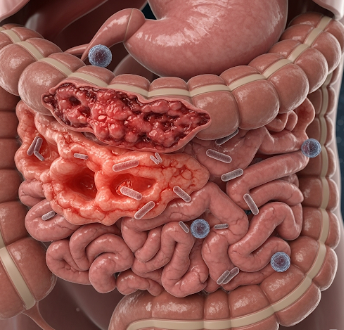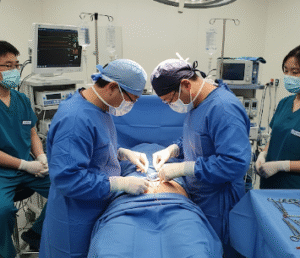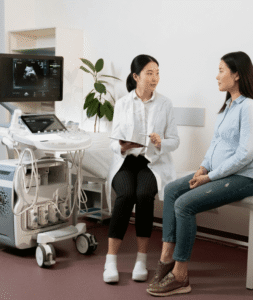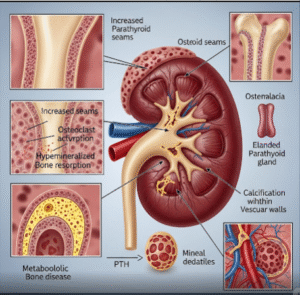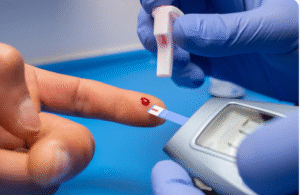Overview
Bowel infections are illnesses caused by pathogens such as bacteria, viruses, or parasites that affect the stomach and intestines, leading to gastrointestinal symptoms like diarrhea, abdominal pain, nausea, and vomiting. These infections can range from mild, self-limiting illnesses to severe, life-threatening conditions requiring hospitalization.
In Korea, bowel infections are managed in gastroenterology and infectious disease clinics, with treatment tailored to the specific causative pathogen. Korean healthcare emphasizes early diagnosis, supportive care, and preventive measures such as hygiene education and vaccination programs for certain pathogens.
What is a Bowel Infection?
Bowel infections, also known as gastrointestinal infections, occur when harmful microorganisms invade or colonize the digestive tract, disrupting normal gut function. They can be classified based on the type of pathogen:
- Bacterial infections: Common bacteria include Escherichia coli, Salmonella, Shigella, Clostridium difficile, and Campylobacter
- Viral infections: Norovirus, rotavirus, and adenovirus are common culprits
- Parasitic infections: Giardia, Entamoeba histolytica, and Cryptosporidium
The severity of infection depends on pathogen type, load, host immunity, and underlying health conditions. In some cases, infections can lead to dehydration, systemic infection, or chronic gastrointestinal complications.
Symptoms
Symptoms of bowel infections can vary but typically include:
- Diarrhea: Can be watery, bloody, or mucus-filled depending on the pathogen
- Abdominal pain and cramps
- Nausea and vomiting
- Fever and chills
- Loss of appetite and fatigue
- Dehydration signs: Dry mouth, reduced urine output, dizziness
- Bloating and gas
In severe cases, especially with bacterial toxins, patients may experience systemic symptoms such as rapid heart rate, low blood pressure, and confusion.
Causes
Bowel infections are caused by ingestion, contact, or colonization of pathogenic microorganisms:
Bacterial causes:
- Contaminated food or water
- Improper hygiene or food handling
- Antibiotic use disrupting gut flora (C. difficile)
Viral causes:
- Person-to-person transmission (e.g., norovirus in daycare or cruise ships)
- Contaminated food or water
Parasitic causes:
- Contaminated water or food
- Poor sanitation and hygiene
- Travel to endemic regions
Other contributing factors include immune system deficiencies, chronic diseases, or recent hospitalization.
Risk Factors
- Consumption of undercooked or contaminated food
- Drinking untreated water or consuming unpasteurized products
- Poor hand hygiene
- Travel to regions with high prevalence of gastrointestinal pathogens
- Use of antibiotics or immunosuppressive medications
- Children, elderly, and immunocompromised individuals are at higher risk
- Crowded living conditions that facilitate transmission
Complications
Untreated or severe bowel infections can lead to serious complications:
- Severe dehydration causing electrolyte imbalances and kidney injury
- Hemolytic uremic syndrome (HUS): Particularly with certain E. coli strains
- Chronic diarrhea or irritable bowel syndrome post-infection
- Sepsis: When infection spreads to the bloodstream
- Malnutrition in prolonged or recurrent cases
- Toxin-mediated organ damage in severe bacterial infections
Prevention
Preventive measures focus on hygiene, safe food practices, and vaccination:
- Proper handwashing with soap and water
- Safe food preparation: Cooking meat thoroughly, washing vegetables and fruits
- Safe drinking water: Boiling or using treated water
- Avoiding unpasteurized milk or dairy products
- Vaccination: Rotavirus vaccine for infants
- Prompt treatment of diarrhea to prevent spread and complications
- Travel precautions: Avoid risky foods and ensure access to safe water
Treatment Options in Korea
Diagnosis
Diagnosis involves identifying the pathogen, severity, and complications:
- Medical history: Recent food intake, travel history, and symptom onset
- Physical examination: Dehydration, abdominal tenderness, and systemic signs
- Laboratory tests: Stool culture, PCR tests for bacteria, viruses, or parasites
- Blood tests: Evaluate for infection severity, dehydration, and electrolyte imbalance
- Imaging: Rarely needed but may identify complications such as obstruction or abscess
Medical Management
- Hydration: Oral rehydration solutions or intravenous fluids for severe dehydration
- Antibiotics: Prescribed only for bacterial infections with significant risk or severity
- Antiparasitic medications: For confirmed parasitic infections such as Giardia or Entamoeba
- Symptomatic treatment: Anti-nausea or antipyretic medications
- Probiotics: Sometimes used to restore healthy gut flora post-infection
Supportive Care
- Dietary management: Light, easily digestible meals during recovery
- Monitoring: For dehydration, electrolyte imbalance, and organ function
- Education: Patient and family guidance on hygiene, safe food handling, and prevention
- Hospitalization: Required for severe dehydration, systemic infection, or vulnerable populations
Prognosis
The prognosis of bowel infections in Korea is generally favorable with early intervention:
- Mild viral infections often resolve within a few days without complications
- Bacterial infections respond well to targeted antibiotics and supportive care
- Severe or complicated infections may require hospitalization and longer recovery periods
- Timely hydration, nutrition, and medical monitoring significantly reduce morbidity and mortality
- Preventive strategies and public health measures in Korea help reduce recurrence and outbreaks
With the advanced diagnostic tools, infectious disease expertise, and hospital care available in Korea, patients with bowel infections can expect effective management, rapid recovery, and low risk of long-term complications.

